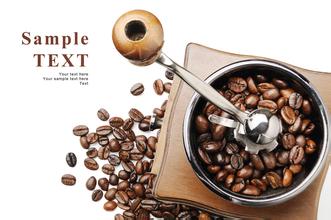The Origin of Cat poop Coffee beans
According to the boss of the coffee company, the Caffeine brand guarantees 100% pure wild kopi luwak.
Musk cat Sumatra bean
Musk cat Sumatra bean
It must be produced more than 1000 meters above sea level in the Sumatra plateau; not that many outside are produced in Vietnam or in other plains of Indonesia, where many Indonesian farmers produce coffee beans from captive civets. Nowadays, most of the Kopi Luwak coffee claimed on the market are non-Kopi Luwak fakes, and they can be divided into these forms: the first is to claim that it is collecting coffee beans on trees in coffee estates that have been infested by luwak, which are called Kopi Luwak coffee, not really coffee beans that can be digested by Luwak; moreover, coffee that is fried with spices; otherwise, it is simply known as Kopi Luwak coffee to fish for fame and raise the price. Moreover, there is no favorable certificate for the domestic coffee industry to show to consumers for verification, and products often have to be obtained through agents in the United States, Canada, the United Kingdom or Australia, rather than directly imported from Indonesian origin, resulting in uneven coffee quality.
Coffee brand editor
The coffee brand guarantees 100% pure wild kopi luwak, which is produced in Sumatra, Zawa, and Sulvis.
, which is part of the 13677 islands of Indonesia. Kopi Luwak brand is the only officially recognized brand by the Indonesian government, and it is deeply loved by coffee lovers for its unique fruity aroma and long aftertaste.
Kopi Luwak is definitely an international luxury because it is produced by civets (Luwak) rather than humans, especially the wild civets born and raised in Indonesia, which are vegetarian and very rare and precious. Indonesian coffee has a long historical background, and coffee footprints can be found in almost every corner of the country. Mountainous islands are very suitable for its growth, and wild coffee can often be found all over the woods. this provides convenience for the producer of Kopi Luwak, the civet.
Brewing mode editing
The aroma of Kopi Luwak is easier to lose than ordinary coffee. In order to maintain the flavor, coffee beans should be packaged independently.
Civet Java coffee beans
Civet Java coffee beans
And then inject nitrogen to prevent the oxidation of coffee beans, the production process is complicated and rigorous. If you want to enjoy the true taste of Kopi Luwak, do not add sugar or milk to your coffee. It is recommended to use an air stopper (Siphon siphon), add 160g / 180ml (ml) of pure water, pour 17g (grams) of coffee powder with about 2 flat spoons of coffee, and gently press down the raised coffee powder with flat bamboo slices after the water boils up. Remember! Do not stir, otherwise the coffee will become bitter, sour and astringent.
The water temperature is 96 ℃, the water pressure is 9-10atm, boil for about 1 minute 45 seconds ~ 2 minutes, quickly remove the fire source and wipe the glass bottle with a cold wet cloth to make it cool rapidly, the brewed coffee will quickly fall and show a large number of golden fine foam, so that the ultimate flavor can be achieved. In the general way of brewing, some people say that civet coffee can be brewed for 2 or 3 times, but the above brewing method is regarded as the essence after boiling for a long time, so rebrewing is not recommended.
Post-drink comment editor
It is said that experts who have tasted this kind of coffee have gone to two extremes in their comments on its taste.
Musk cat coffee
Civet Coffee (3)
One describes the coffee as "the best in the world". It tastes so unusual that it is difficult to describe in words: "it is a little fishy, slightly choking and visceral, and it stays in the mouth for a long time until the last drop." Another evaluation is quite the opposite: "it's hard to swallow, it's a complete gimmick, and it's not worth paying for stinky coffee."
Coffee experts say that most Luwak coffee comes from low-altitude robusta beans, suggesting that civets prefer robusta beans to Arabica beans at higher altitudes. As the activity range of Luwak belongs to low and middle altitude, most of the coffee varieties are robusta beans, while Arabica beans at high altitude are rarer. Indonesian coffee itself has the taste of earth and traditional Chinese medicine, and its consistency is among the highest in all continents, but Luwak coffee has a better taste and consistency, especially with a consistency almost close to syrup, and its flavor is very special (if it can be described by fragrance).
The coffee made from real civet coffee will give off the aroma of honey and chocolate without adding sugar.
And cream has a sweet, smooth and rich taste, and the texture of the original water has been fully covered by the round and rich texture of the coffee, so the tip of the tongue can hardly feel the quality of the water at the beginning of the mouth. Not bitter, not sour, not astringent, but a little more milk flavor, and after entering the throat without scraping the stomach will not cause stomach discomfort. Even if it is cold, the taste is still mellow. After tasting it, the cup still has a sweet smell of milk. It is a coffee with rich texture and depth, and it is absolutely unique. But if you don't like the taste of Indonesian coffee in the first place, then to be sure, you will hate Luwak coffee more; but if, on the contrary, you like the fishy smell of Indonesian aged beans or Indian soiled beans, you may fall in love with Luwak coffee with similar flavor.

Important Notice :
前街咖啡 FrontStreet Coffee has moved to new addredd:
FrontStreet Coffee Address: 315,Donghua East Road,GuangZhou
Tel:020 38364473
- Prev

The origin of Bali coffee beans The origin of Bali coffee beans Boutique coffee
The story of Bali coffee is perhaps one of the most fascinating and romantic in coffee history. In 1862, the magnificent palace of Versailles, the sun king Louis XIV dress sitting, crown that valuable, full of legendary sixty-seven carats of hope blue diamond, dazzling, the court attended by noble ministers wearing gold and silver. They're waiting for something from the far and magical East
- Next

Introduction of Cat poop Coffee beans Fine Coffee
According to the boss of the coffee company, the Kafe brand guarantees 100% of the pure wild kopi luwak. Sumatra beans, a musk cat, must be produced in the Sumatra plateau more than 1000 meters above sea level, rather than that many outside are produced in Vietnam or other plains in Indonesia. Many Indonesian farmers are coffee beans produced by captive muskcats. On the market today
Related
- Does Rose Summer choose Blue, Green or Red? Detailed explanation of Rose Summer Coffee plots and Classification in Panamanian Jade Manor
- What is the difference between the origin, producing area, processing plant, cooperative and manor of coffee beans?
- How fine does the espresso powder fit? how to grind the espresso?
- Sca coffee roasting degree color card coffee roasting degree 8 roasting color values what do you mean?
- The practice of lattes: how to make lattes at home
- Introduction to Indonesian Fine Coffee beans-- Java Coffee producing area of Indonesian Arabica Coffee
- How much will the flavor of light and medium roasted rose summer be expressed? What baking level is rose summer suitable for?
- Introduction to the characteristics of washing, sun-drying or wet-planing coffee commonly used in Mantenin, Indonesia
- Price characteristics of Arabica Coffee Bean Starbucks introduction to Manning Coffee Bean Taste producing area Variety Manor
- What is the authentic Yega flavor? What are the flavor characteristics of the really excellent Yejasuffi coffee beans?

